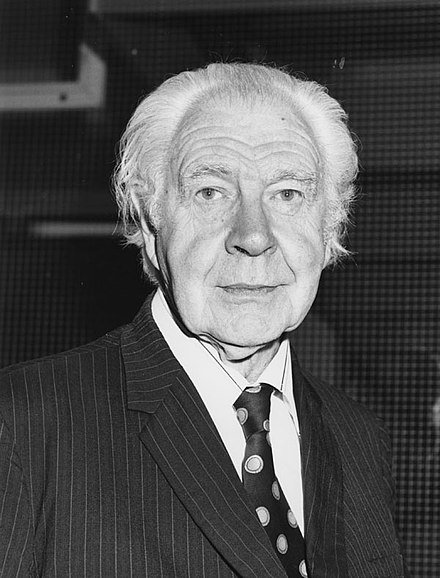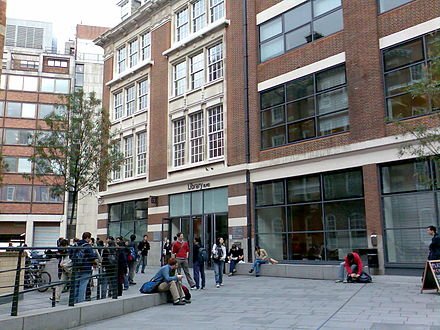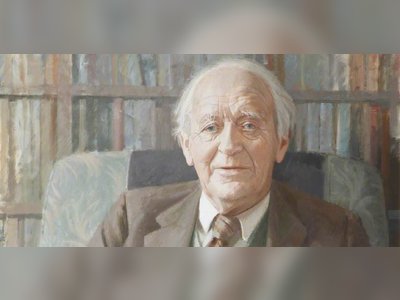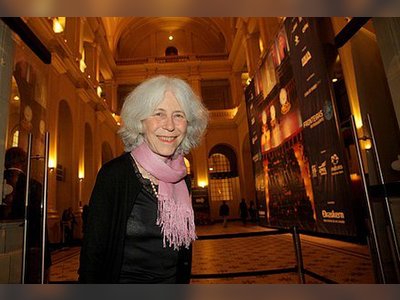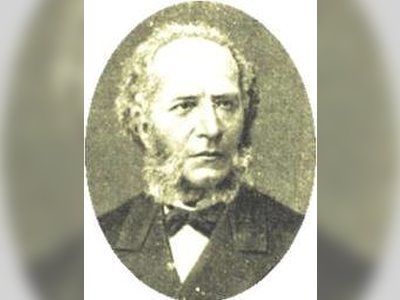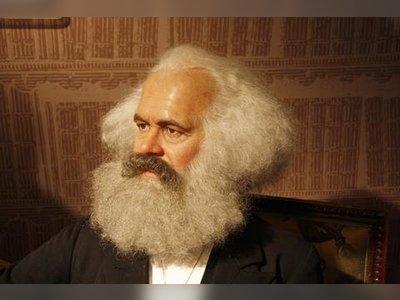British Heritage
Remember, Cherish, Learn.
beta
Lionel Robbins - Free Market Economist
A Pioneering Free Market Economist and British Intellectual Heritage.
Lionel Charles Robbins, Baron Robbins (1898 –1984), is a widely acknowledged name in the annals of British economics and intellectual heritage. As a preeminent economist and a transformative academic at the London School of Economics (LSE), Robbins' contributions to economic theory and his defining influence on British and global economics leave a substantial legacy.
Born on November 22, 1898, in Sipson, west of London, Lionel Robbins was the progeny of Rowland Richard Robbins and Rosa Marion Harris. His father, a farmer and an influential member of the Middlesex County Council, belonged to the National Farmers' Union. His upbringing, grounded in Strict Baptist principles, shaped his moral compass and work ethics.
Robbins began his academic journey at home and later attended Hounslow College and Southall County School. His university education started in 1915 at University College London, where he studied arts and attended lectures by renowned scholars like W. P. Ker, Francis Charles Montague, and A. F. Pollard.
Robbins' involvement in World War I, starting from his training in early 1916 to his discharge in 1918 due to a sniper-inflicted injury, dramatically impacted his worldview. During his service, he developed an interest in guild socialism, reading extensively G. D. H. Cole's works and associating with socialist activists like Reginald Lawson and James Joseph Mallon.
In 1920, Robbins resumed his studies at LSE, where he was mentored by eminent scholars such as Harold Laski, Edwin Cannan, and Hugh Dalton. He graduated in 1923 with a B.Sc.(Econ), first-class honours, leaving an impression as the most promising student of his generation at LSE.
Post-graduation, Robbins began his career researching for William Beveridge, facilitated by Dalton. He secured a fellowship in economics at New College, Oxford, and later returned to LSE in 1925 as an assistant lecturer, eventually being promoted to lecturer.
Robbins succeeded Allyn Abbott Young as Professor of Economics at LSE in 1929, relocating to Hampstead Garden Suburb with his wife. Throughout the 1930s, he bolstered the economics department, recruiting luminaries like Friedrich von Hayek, John Hicks, and Nicholas Kaldor.
Robbins initially clashed with John Maynard Keynes on economic policy, especially during the early 1930s' Great Depression. Despite their early differences, by the 1940s and 1950s, Robbins had accepted the necessity for government intervention and became fully reconciled with Keynes' theories. This ideological transition illustrated his intellectual flexibility and openness to challenging traditional economic paradigms.
During World War II, Robbins served in the British government's Central Economic Information Service, spearheading the Economic Section as Director from 1941. He was instrumental in devising a successful rationing system for clothing, footwear, and household goods alongside Peggy Joseph and James Meade.
In the post-war period, Robbins focused on planning for post-war reconstruction. He played a significant role in the negotiation of the 1946 Anglo-American loan and contributed to establishing food security on the United Nations agenda.
In 1963, the Robbins Report, under his authorship, proposed a substantial expansion of higher education in the UK. This report established the "Robbins principle," asserting that demand from those suitably qualified should guide the development of higher education. This vision played a substantial role in shaping the future of British education, reflecting Robbins' profound influence beyond the field of economics. He was appointed as the first Chancellor of the new University of Stirling in 1968, and he championed substantial government support for the arts and universities.
Robbins received several honours, including being appointed a Companion of the Order of the Bath (CB) in 1944, created a life peer as Baron Robbins in 1959, and appointed a Companion of Honour (CH) in 1968. His name graces the Lionel Robbins Building at the London School of Economics, symbolising his enduring impact on the institution.
As a free-market economist, Robbins is best known for his definition of economics and his dedicated work in shifting Anglo-Saxon economics from its Marshallian direction. His definition of economics, which sparked much debate in the 1930s, eventually gained widespread acceptance among economists. Robbins was influenced by the works of Philip Wicksteed, William Stanley Jevons, John Neville Keynes, and many others.
Robbins' pioneering work not only shaped the evolution of economics as a discipline but also significantly influenced public policy, particularly in the areas of education, welfare, and arts funding. His commitment to intellectual rigor, his contribution to British higher education, and his work on free-market economics make him a standout figure in British intellectual heritage.
Early Years and Education
Born on November 22, 1898, in Sipson, west of London, Lionel Robbins was the progeny of Rowland Richard Robbins and Rosa Marion Harris. His father, a farmer and an influential member of the Middlesex County Council, belonged to the National Farmers' Union. His upbringing, grounded in Strict Baptist principles, shaped his moral compass and work ethics.
Robbins began his academic journey at home and later attended Hounslow College and Southall County School. His university education started in 1915 at University College London, where he studied arts and attended lectures by renowned scholars like W. P. Ker, Francis Charles Montague, and A. F. Pollard.
Robbins' involvement in World War I, starting from his training in early 1916 to his discharge in 1918 due to a sniper-inflicted injury, dramatically impacted his worldview. During his service, he developed an interest in guild socialism, reading extensively G. D. H. Cole's works and associating with socialist activists like Reginald Lawson and James Joseph Mallon.
In 1920, Robbins resumed his studies at LSE, where he was mentored by eminent scholars such as Harold Laski, Edwin Cannan, and Hugh Dalton. He graduated in 1923 with a B.Sc.(Econ), first-class honours, leaving an impression as the most promising student of his generation at LSE.
Career and Academic Contributions
Post-graduation, Robbins began his career researching for William Beveridge, facilitated by Dalton. He secured a fellowship in economics at New College, Oxford, and later returned to LSE in 1925 as an assistant lecturer, eventually being promoted to lecturer.
Robbins succeeded Allyn Abbott Young as Professor of Economics at LSE in 1929, relocating to Hampstead Garden Suburb with his wife. Throughout the 1930s, he bolstered the economics department, recruiting luminaries like Friedrich von Hayek, John Hicks, and Nicholas Kaldor.
Contra Keynes and the Evolution of Robbins' Thought
Robbins initially clashed with John Maynard Keynes on economic policy, especially during the early 1930s' Great Depression. Despite their early differences, by the 1940s and 1950s, Robbins had accepted the necessity for government intervention and became fully reconciled with Keynes' theories. This ideological transition illustrated his intellectual flexibility and openness to challenging traditional economic paradigms.
World War II and Post-War Contributions
During World War II, Robbins served in the British government's Central Economic Information Service, spearheading the Economic Section as Director from 1941. He was instrumental in devising a successful rationing system for clothing, footwear, and household goods alongside Peggy Joseph and James Meade.
In the post-war period, Robbins focused on planning for post-war reconstruction. He played a significant role in the negotiation of the 1946 Anglo-American loan and contributed to establishing food security on the United Nations agenda.
Robbins Report and Higher Education
In 1963, the Robbins Report, under his authorship, proposed a substantial expansion of higher education in the UK. This report established the "Robbins principle," asserting that demand from those suitably qualified should guide the development of higher education. This vision played a substantial role in shaping the future of British education, reflecting Robbins' profound influence beyond the field of economics. He was appointed as the first Chancellor of the new University of Stirling in 1968, and he championed substantial government support for the arts and universities.
Legacy and Honours
Robbins received several honours, including being appointed a Companion of the Order of the Bath (CB) in 1944, created a life peer as Baron Robbins in 1959, and appointed a Companion of Honour (CH) in 1968. His name graces the Lionel Robbins Building at the London School of Economics, symbolising his enduring impact on the institution.
Influences and Views
As a free-market economist, Robbins is best known for his definition of economics and his dedicated work in shifting Anglo-Saxon economics from its Marshallian direction. His definition of economics, which sparked much debate in the 1930s, eventually gained widespread acceptance among economists. Robbins was influenced by the works of Philip Wicksteed, William Stanley Jevons, John Neville Keynes, and many others.
Robbins' pioneering work not only shaped the evolution of economics as a discipline but also significantly influenced public policy, particularly in the areas of education, welfare, and arts funding. His commitment to intellectual rigor, his contribution to British higher education, and his work on free-market economics make him a standout figure in British intellectual heritage.
- Lionel Robbinsen.wikipedia.org
